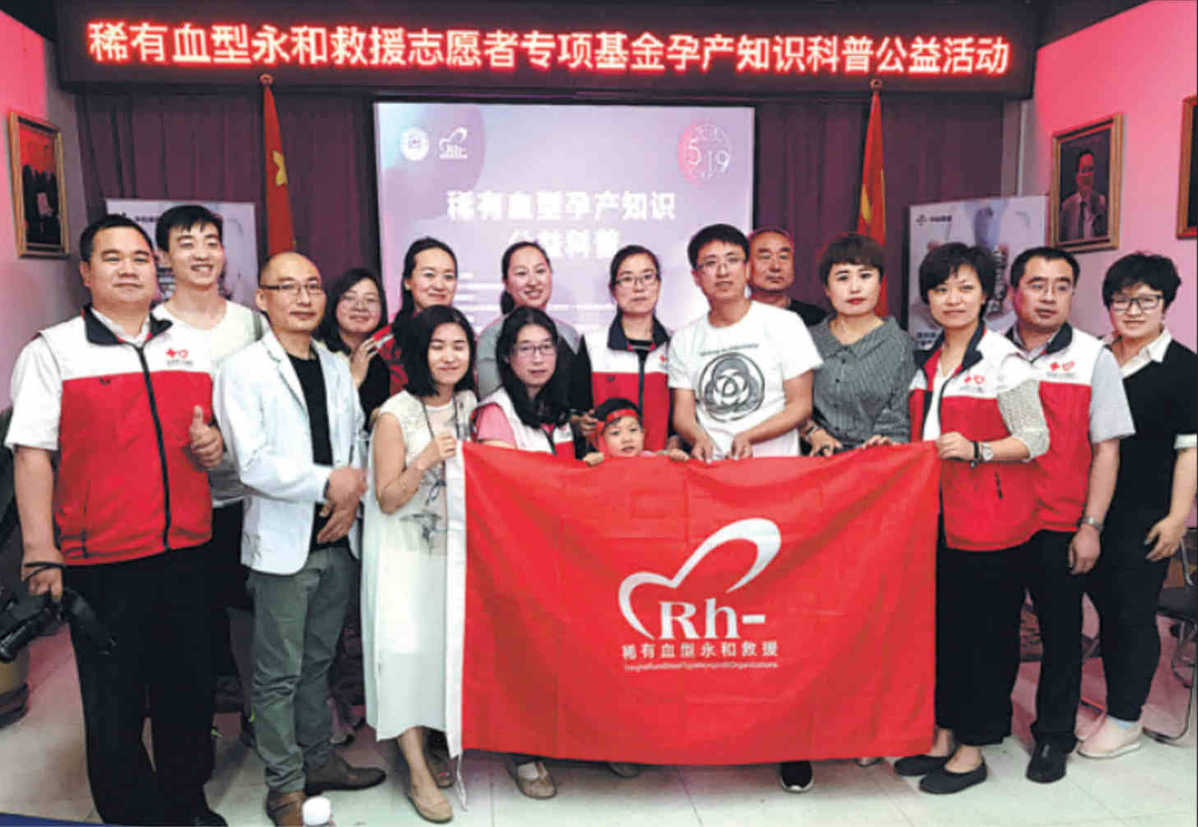
As someone with Rh-negative AB blood-a one-in-10,000 chance-Jiang Yonghe is fully aware of the value of blood donors.
The 42-year-old Shaanxi province native started donating blood in 2003, when he began working in Beijing's construction industry.
In 2013, Jiang and several friends who also have Rh-negative blood founded the Yonghe Rare Blood Type Nonprofit Organization, a nonprofit dedicated to helping those in need and raising awareness of the issue.
Its activities are mainly funded by donations, and its WeChat groups have nearly 2,000 members who can raise questions related to their blood type and receive answers or donate for those in need, he said.
The volunteers post messages and explain the different types of rare blood groups, and about 10 of them regularly share information about how blood status can affect women during pregnancy.
"Blood banks mainly consider the overall supply, but what we think about is saving people with rare blood types, so the feeling is different. We provide the same help for all those who seek our assistance," Jiang said.
He noted that the members' donations should only be used for emergencies. They are not for patients who need blood over the long term because all supplies are limited, but that's especially true for rare types.
"Our organization is a sort of supplement for the blood banks. We usually contact four blood banks in Beijing, and if they need Rh-negative blood, we post a request in our WeChat groups to see if any volunteers are able to donate," he said.
After receiving a request for help from patients' relatives or official sources, the group verifies the diagnosis with the relevant hospital to avoid being cheated by "blood dealers" and then recruits volunteers. Contact details are given to those who are able to donate.
"Our donors never ask for payment, but the patients' families usually pay the cab fare to the hospital. In addition, the group usually buys each donor 12 months of accident insurance as a thank-you for helping," he said.
Although the patients' families always express their gratitude, he often finds that some delete his contact details once the donations have been made.
"Initially, I was disappointed by that behavior, but I gradually changed my mind. The way I see it is that I just donate blood voluntarily to help those in need. Other people's reactions have nothing to do with me. We always tell the other donors to conquer their disappointment if the same thing happens to them," he said.
At one time, even active donors sometimes faced situations where there was no blood for them when they needed it, and even local blood stations were unable to raise volunteers. Now, the situation is improving and people's awareness of blood donation is rising, he said.
According to the National Health Commission, blood donations per 1,000 people rose from 0.48 percent in 1998 to 1.11 percent last year.
